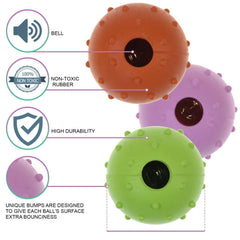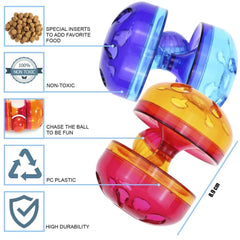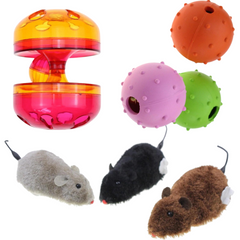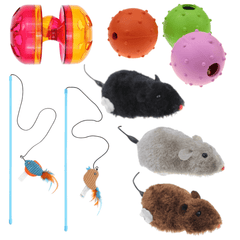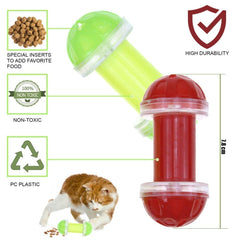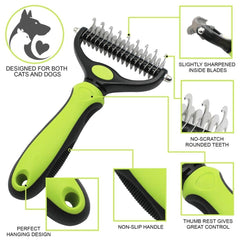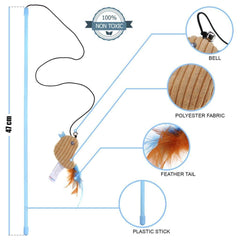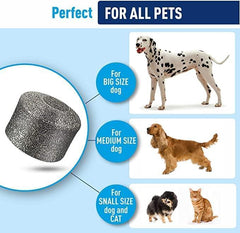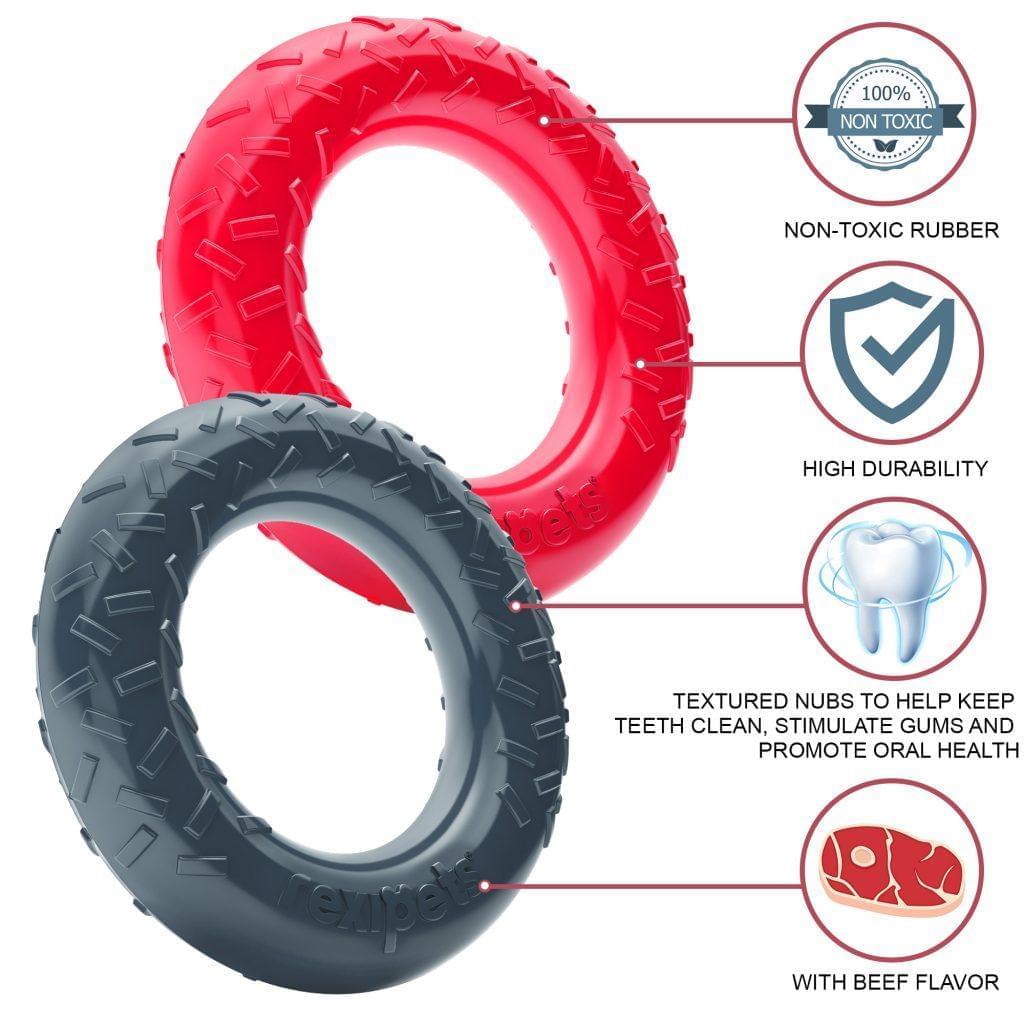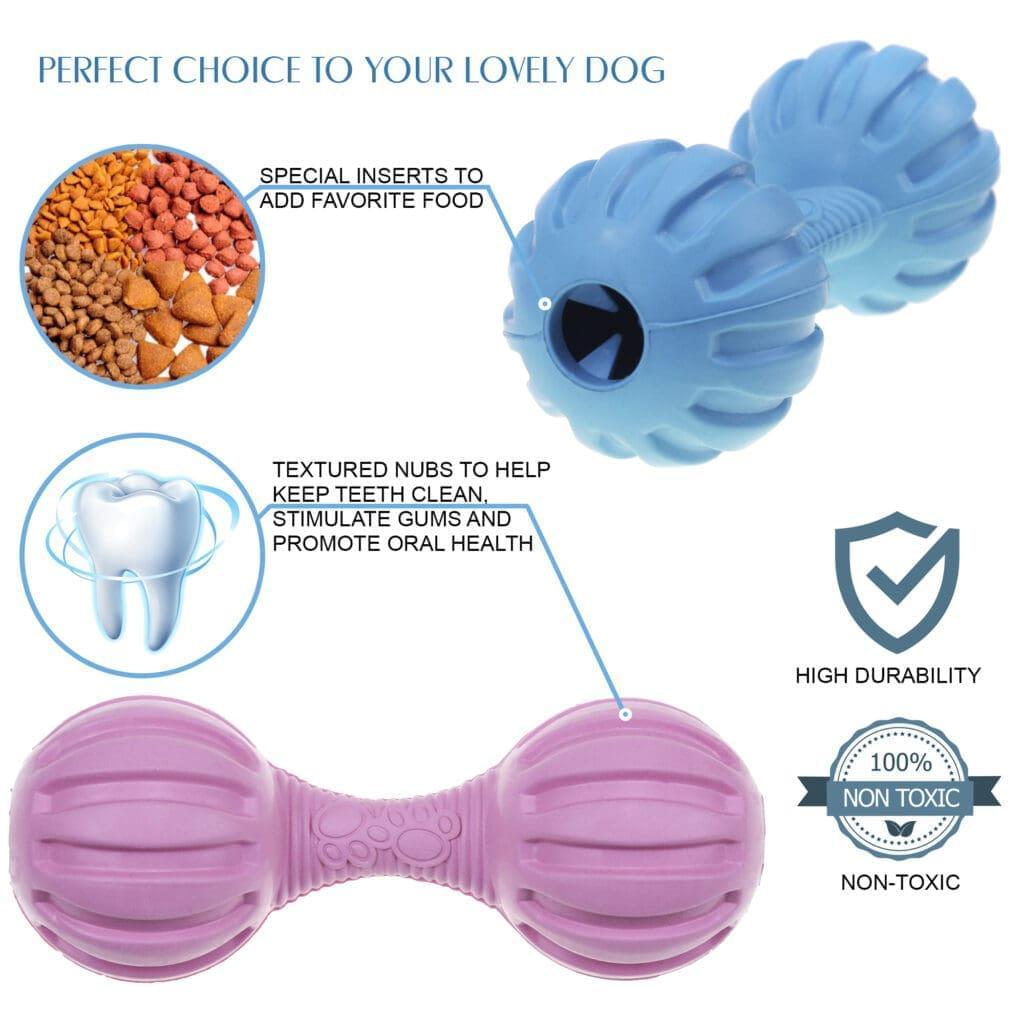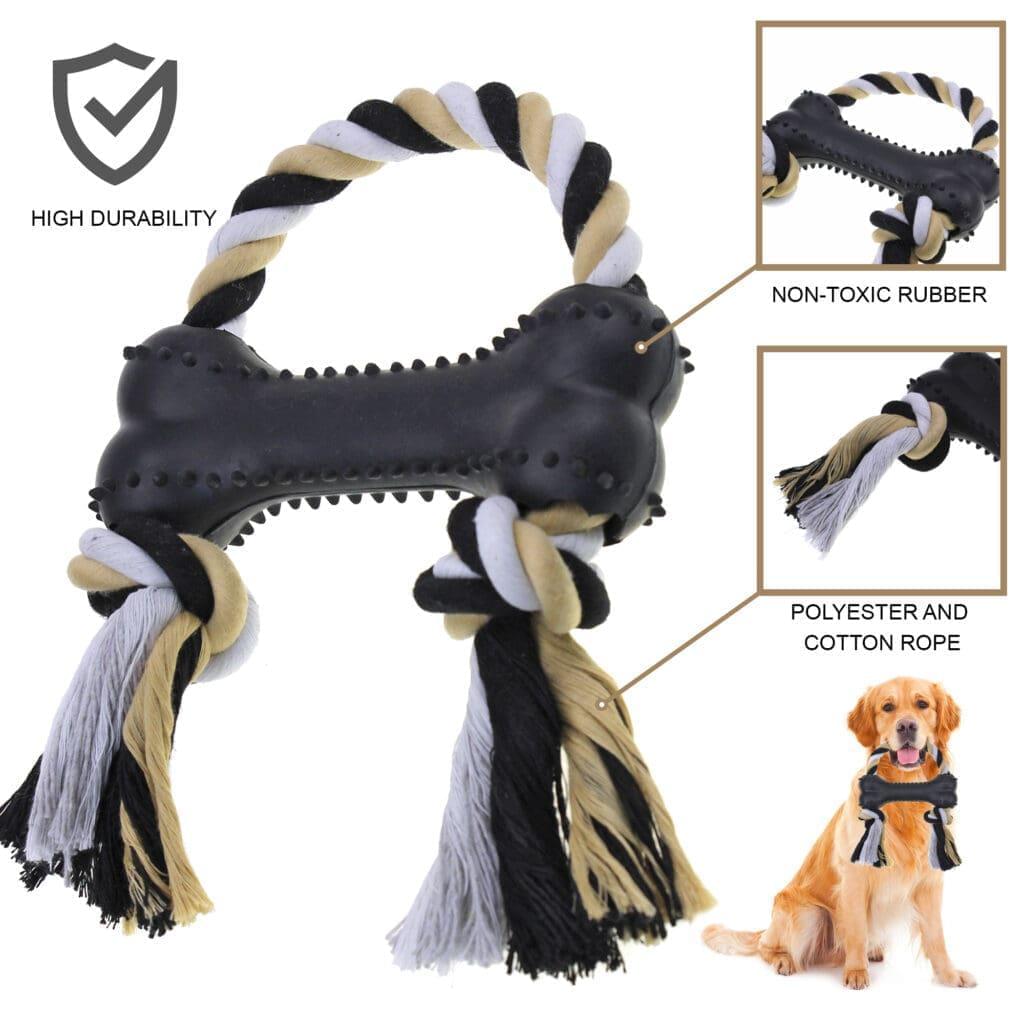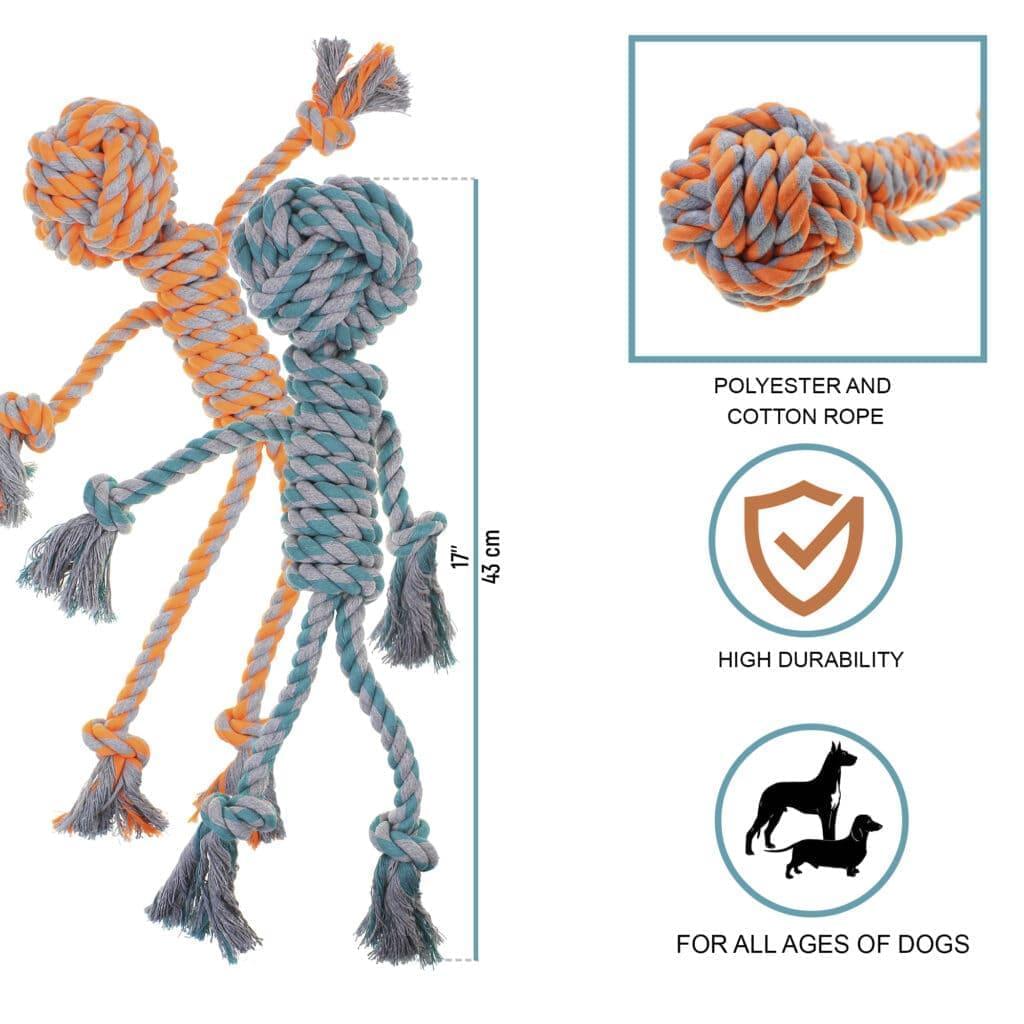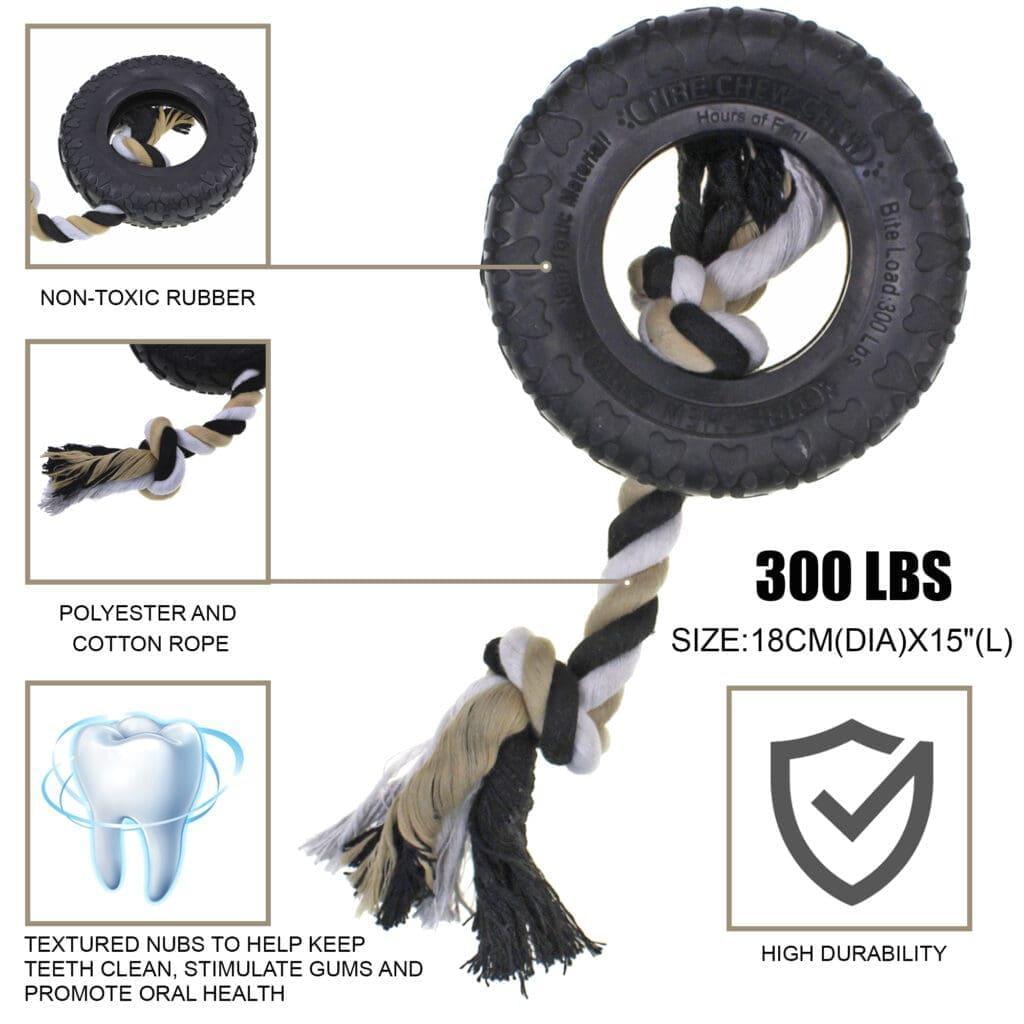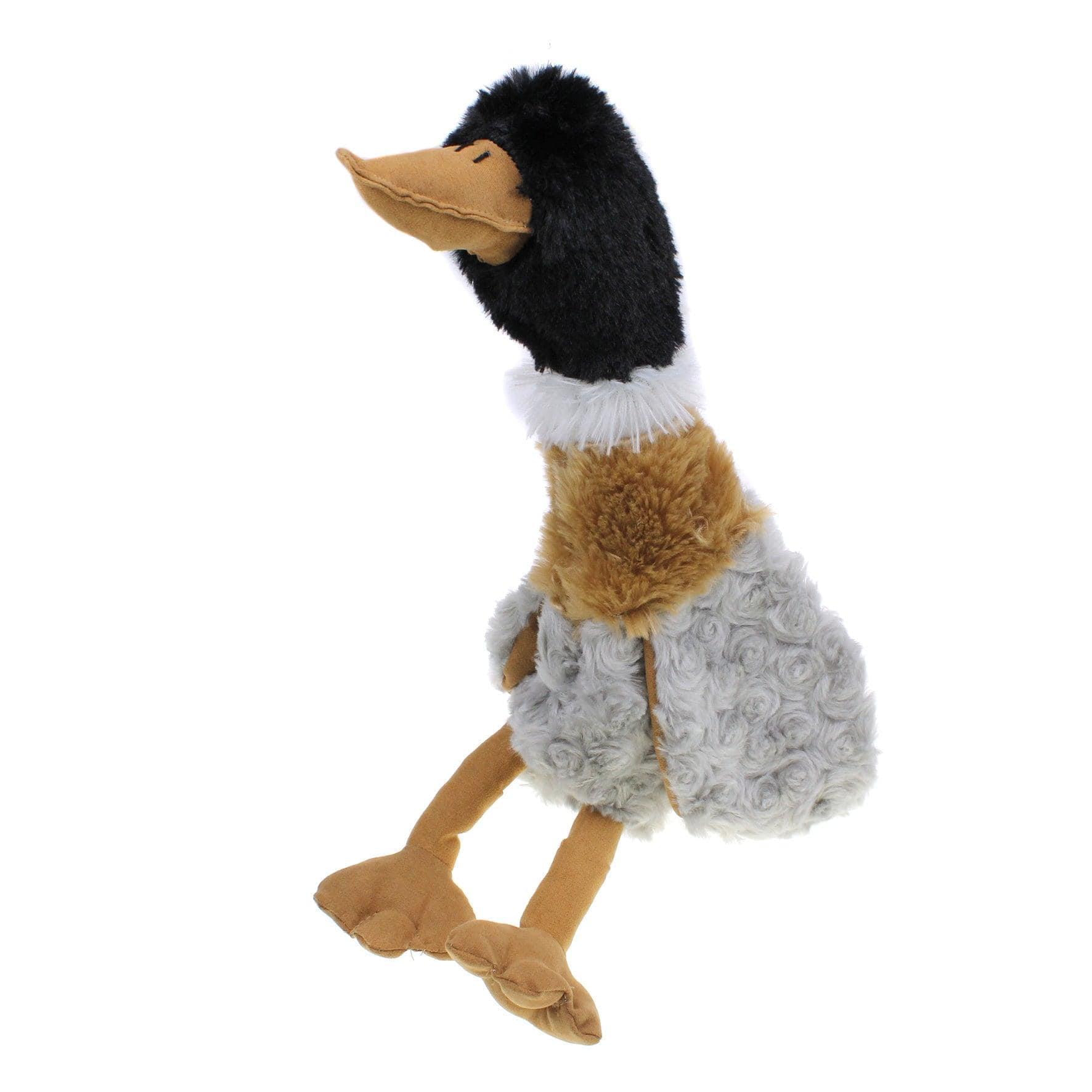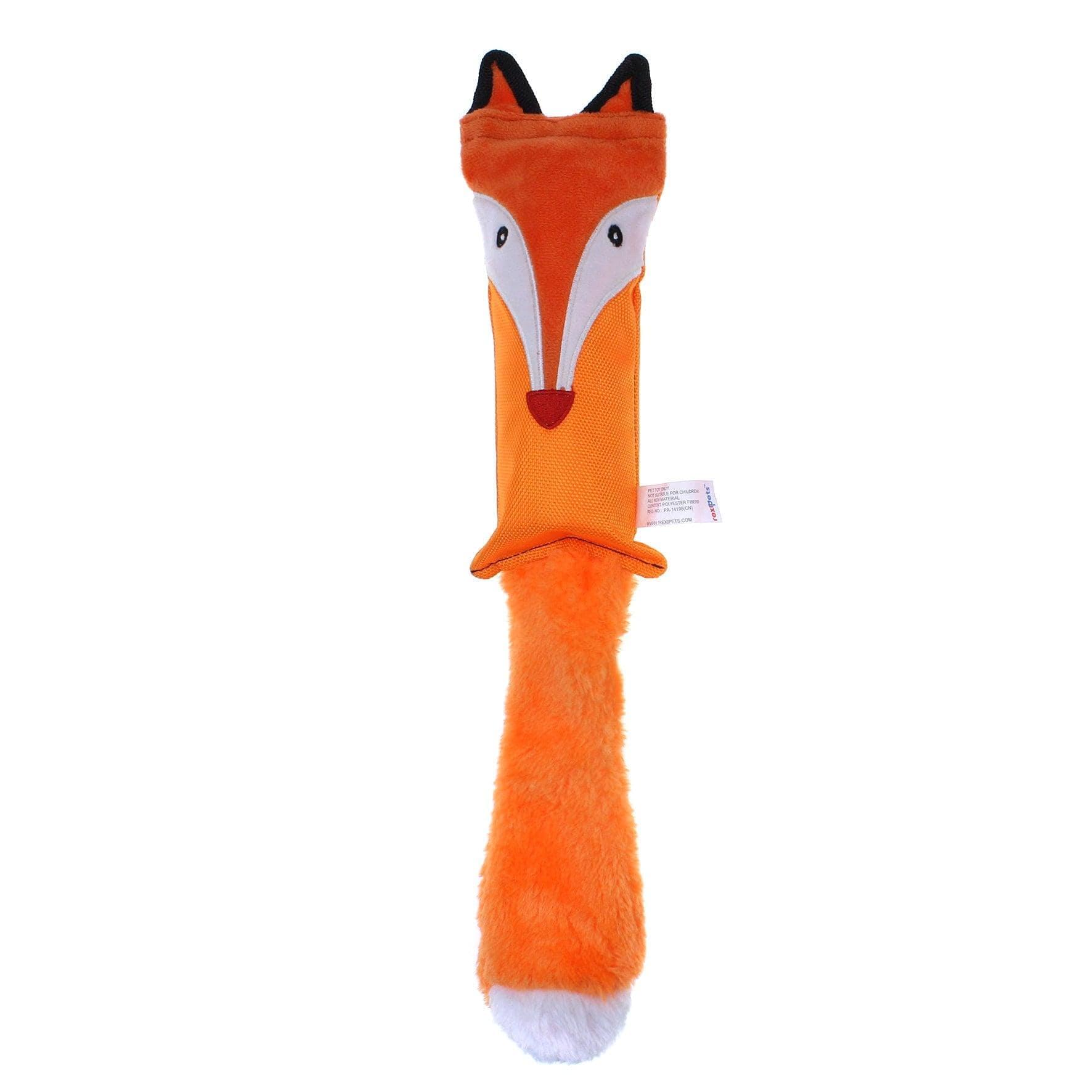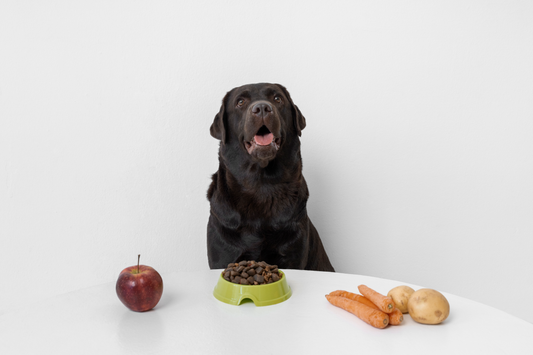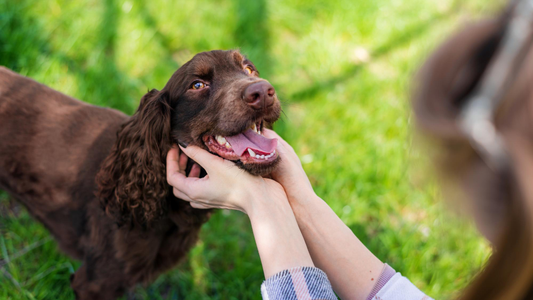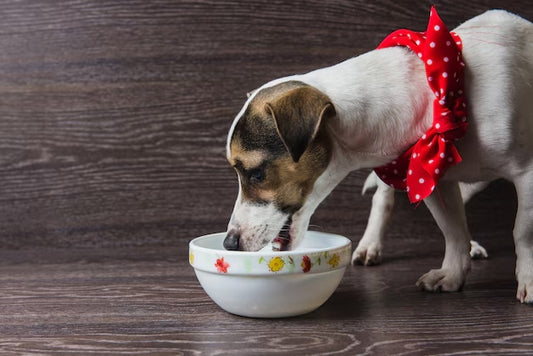
Do you ever worry if your dog is getting enough nutrition through their diet and treats? Have you ever considered vitamin supplements for your dog so that they can live a happier and healthier life?
Well, say no more. Today, we're going to talk about an essential vitamin required for your dog - Vitamin E.
In this post, we'll uncover what vitamin E does for dogs. How much vitamin E you should give your dog, along with signs of vitamin E deficiency or overdose in dogs.
But that's not all! We'll explore dog-friendly foods that are rich in Vitamin E, ensuring a holistic approach to your dog's well-being, because who doesn't want their canine companion to lead a happier, healthier life?
So, hang in there, and let us tell you all you need to know about vitamin E for dogs.
What Does Vitamin E Do for Dogs?
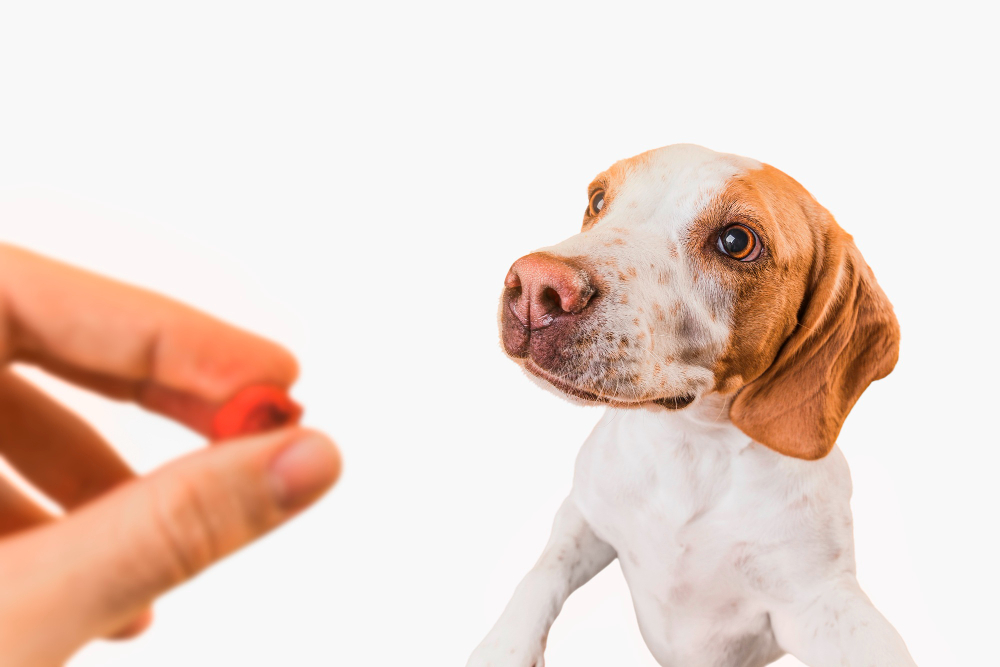
Vitamin E is a fat-soluble vitamin that acts like a superhero for your dog's health. It helps build cell membranes and keeps their eyes, skin, and fat processing in good shape. But its main job is to be an antioxidant.
When excessive oxidative damage occurs due to free radicals, it can impact a dog's vision, tissues, and vital systems like their reproductive systems, immune systems, cardiovascular systems, and nervous systems. Moreover, these free radicals can even team up to create diseases and cancer.
Here's where Vitamin E steps in as the hero. It stops these free radicals from causing damage. This protection helps reduce the chance of problems like inflammation, cancer, and aging too much.
Studies show that Vitamin E can help with issues like arthritis and allergies in dogs. It can even lessen the toxicity of harmful metals, making sure your furry friend stays healthy and happy.
How Much Vitamin E Should I Give My Dog?

The Association of American Feed Control Officials claims that adult dogs should get at least 50 IU of vitamin E every day. To break it down, that's roughly 33.5 mg of natural vitamin E (d-alpha-tocopherol) or 45 mg of synthetic vitamin E (dl-alpha-tocopherol).
However, this recommendation is like a general guide and doesn't really take into account things like how big your dog is, if they have any health issues, or if they lack certain nutrients. That's why it's super important to have a chat with your vet before you give vitamin E supplementation to your dog. They can help figure out the exact amount of vitamin E that's just right for your dog.
Usually, dogs eating regular store-bought dog food get their fair share of vitamin E. But if your pup has a special homemade diet, the vitamin E they get might not be consistent.
So, it's always a good idea to team up with your vet to make sure your dog is getting the perfect amount of this important vitamin.
How to Give Your Dog Vitamin E?

Vitamin E for dogs comes in different forms, like pills, chewables, or oils that you mix with their food. Some dogs get it as part of a special diet the vet suggests. If your pup has skin issues, there are creams and shampoos with vitamin E.
However, giving it to your dog orally, either mixed in their food or as a supplement, is the best way to make sure they get enough.
Your vet can help you decide what works best, considering what your dog likes and how easy it is to give it to them.
For example, chewable treats might work for dogs who love chewable treats, while dogs who are food lovers can also have vitamin E drops or powder added to their food.
So, there are lots of options to give vitamin E to your dog and keep them healthy!
Where can you get Vitamin E for dogs?

Before you go on a hunt for a vitamin E supplement for your furry friend, it's wise to begin by talking to your vet. They know which vitamins are safe and work well for dogs.
Once you have their advice, you can start looking for the recommended vitamin supplement. You can check out various places like online pet supply shops, regular pet stores, general online retailers, the pet section in big stores, and even natural grocers.
These places often have a variety of options, so you can find something that suits your dog's needs and your convenience. Always go for what your vet suggests for the safest choice!
Signs of Vitamin E Deficiency in Dogs

While it's uncommon for dogs to have a vitamin E deficiency, it can happen, especially if they're not getting a complete and balanced diet. Homemade dog food might lack enough vitamin E. Diets that are heavy on fish, and fish oil can use up vitamin E quickly, needing extra to keep the body healthy.
If your dog lacks enough vitamin E, you might observe several signs indicating a deficiency:
-
Muscle Weakness
If your dog has a vitamin E deficiency, it may show signs of reduced muscle strength and muscle tissue breakdown. This can meddle in muscle function as well.
-
Decreased Vision
A lack of vitamin E can affect your dog's eyesight, leading to decreased vision, which can lead to accidents.
-
Skin Problems
Skin-related issues, such as dryness or irritations, may become a norm if your dog is dealing with vitamin E deficiency.
-
Weight Loss
A vitamin E deficiency can also cause your dog to lose weight abnormally, which can be fatal in extreme cases.
-
Decreased Fertility
Vitamin E plays a role in reproductive health, and a deficiency may result in reduced fertility and issues with the reproductive organs.
-
Changes in Behavior
Behavioral shifts or neurological symptoms could become apparent due to insufficient vitamin E levels.
-
Impaired Immunity
A vitamin E deficiency may lead to a weakened immune system, which may make your dog more susceptible to illnesses.
-
Impact on Fat-Soluble Vitamins
An overdose of vitamin E can meddle with the absorption of other fat-soluble vitamins like A, K, and D.
-
Brown Bowel Syndrome
In severe cases, a vitamin E deficiency can lead to a condition known as brown bowel syndrome, which is a rare gastrointestinal condition affecting the digestive system.
If your dog has a vitamin E deficiency, your vet might recommend giving them a vitamin E supplement. They could also advise switching to a dog food that has a higher vitamin E content.
However, you need to look out for signs of vitamin E overdose in dogs, as too much of a good thing can also cause trouble.
Signs of Vitamin E Overdose in Dogs
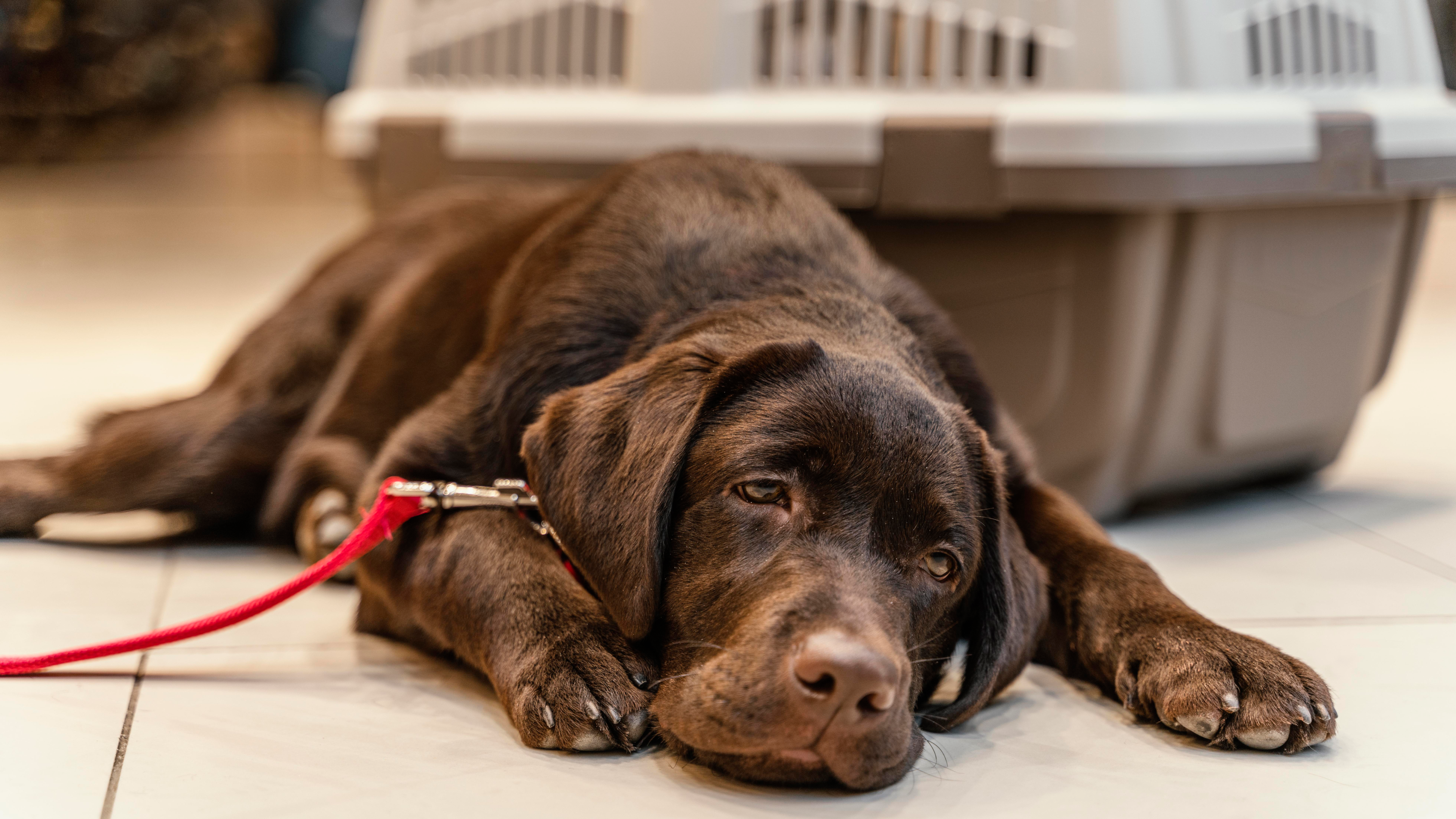
Giving your dog too many vitamin E supplements can cause problems, but it's rare with vitamin E. Most times, dogs get the right amount from their regular food.
Vitamin E, however, can affect blood clotting, making dogs bleed more easily if there's an overdose. It's usually safe if you stick to the amount of vitamin E recommended by your vet.
Watch out for signs your dog might be getting too much vitamin E, like your dog being more lethargic than usual, bleeding easily, vomiting, acting differently, eating less, or having disturbed bowel movements.
Dog Foods That Are Great Sources of Vitamin E
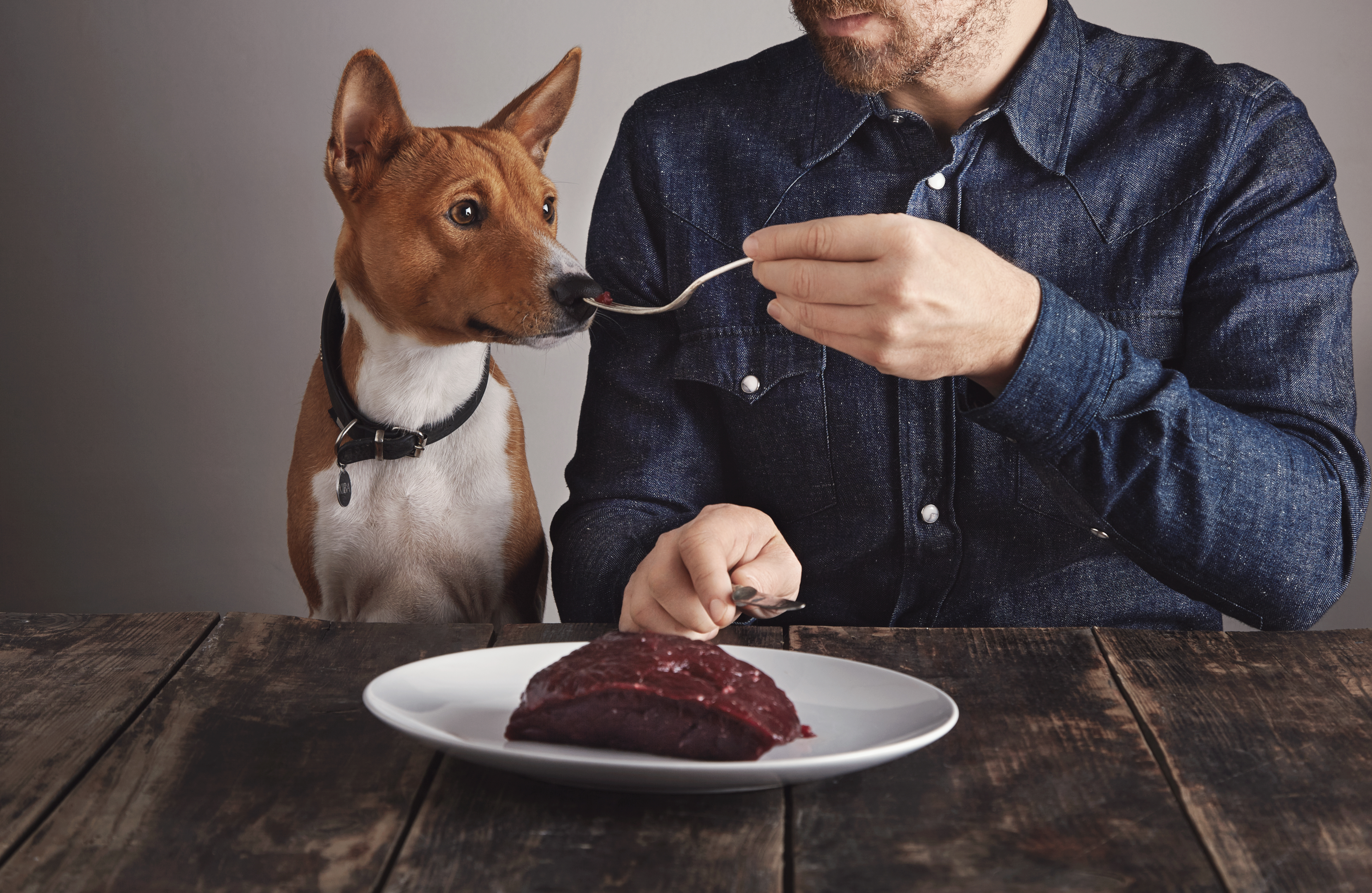
Your dog needs a good dose of vitamin E from store-bought dog food, which has it as a nutrient and a natural preservative. But there are other foods with this important vitamin that your furry friend can munch on safely.
Foods like liver, nuts, seeds, and green leafy veggies are packed with vitamin E. So, if you include these in your dog's meals, you're giving your pup a range of good nutrition that helps them stay strong and happy.
Foods that have high concentrations of vitamin E include - Liver, Spleen, Eggs, Soybean oil, Safflower oil, Sunflower oil, Wheat germ oil, Legumes, Atlantic salmon, Rainbow trout, Mango, Blackberries, Red sweet pepper, Butternut squash, Turnip greens, Spinach, Broccoli, and Cooked asparagus.
Final Words!

To sum up, vitamin E is like a superhero for our furry friends. It does a lot of good for them, from keeping their eyes and skin healthy to keeping their immune system strong. While regular dog food usually has enough, adding different foods with vitamin E along with vitamin E supplements can make their diet even better.
If your dog is missing out on vitamin E, it could cause some problems like muscle weakness, vision issues, or skin trouble. But don't worry too much because you can fix it! Your vet might suggest giving your dog a vitamin E supplement or changing their diet to one with more vitamin E.
Remember, too much of anything can be a problem, so it's important to follow what your vet says. They can guide you on the right amount and form of vitamin E for your furry friend. So, by understanding and including vitamin E in your dog's care, you ensure they stay happy, healthy, and full of energy.
Frequently Asked Questions
What should I do if I suspect a Vitamin E overdose in my dog?
Contact your vet ASAP if you notice signs like lethargy, increased bleeding, vomiting, behavior changes, or appetite alterations. They can guide you over the appropriate steps you should take.
Can Vitamin E be used topically for dogs with skin issues?
Vitamin E is available in topical forms, like creams and shampoos, in pharmacies and pet stores. These can be of great help in addressing skin conditions, but it's advisable to consult with your vet to determine the most effective way to deal with your dog's vitamin E needs.
Is Vitamin E supplementation necessary for all dogs?
Not necessarily. Dogs receiving a balanced and complete commercial diet may not require additional Vitamin E or any other supplementing vitamin. However, specific health conditions, dietary restrictions, or unique needs might warrant supplementation, and it's best to consult with a veterinarian.
Are there natural sources of Vitamin E that dogs can easily consume?
Yes, dogs can get vitamin E from foods like nuts, seeds, and certain oils. However, it's crucial to make sure your dog is not allergic to these foods so that they are safe and suitable for consumption.
